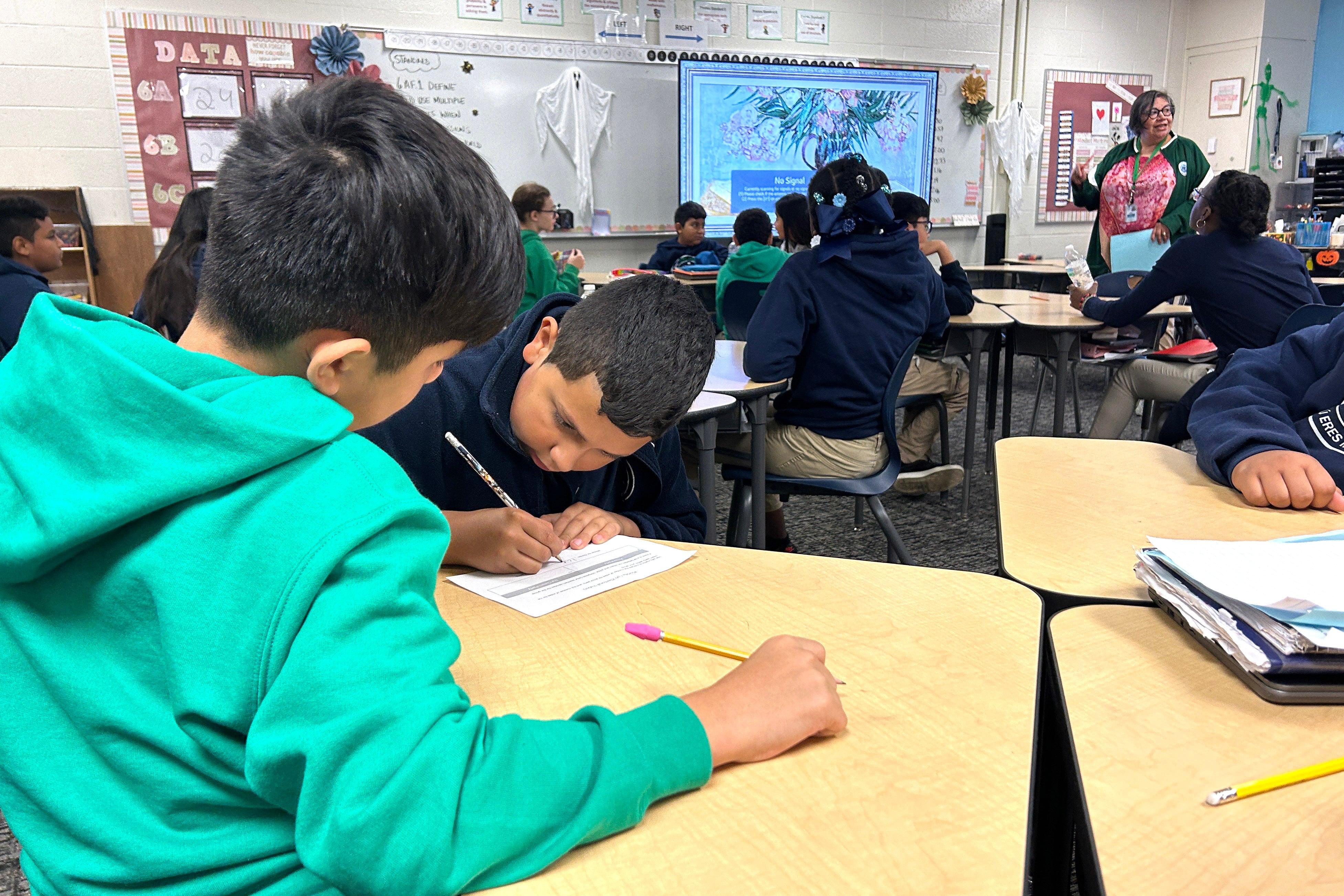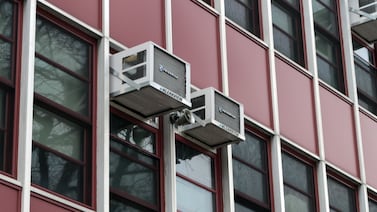Sign up for Chalkbeat Indiana’s free daily newsletter to keep up with Indianapolis Public Schools, Marion County’s township districts, and statewide education news.
Two new apprenticeships in Indiana hope to encourage more Hoosiers to become educators at a time when fewer students are completing traditional teaching pathways.
The state’s Early Childhood Educator Registered Teacher Apprenticeship program and a new Registered Apprenticeship Program from Indiana University each give students a way to earn paid work experience alongside a high school diploma or bachelor’s degree.
The state program is aimed at high school students, allowing them to work in an early learning classroom and earn a credential on top of their diplomas. IU’s apprenticeship, meanwhile, is for high school graduates who are either already working in schools or hope to work while earning their bachelor’s degrees in education.
Each is aligned to Indiana’s ongoing push to blur the lines between secondary, postsecondary, and on-the-job education, which has led to the growth of apprenticeships and state funding for career training.
Education officials hope that apprenticeships will encourage more people to consider the teaching profession in order to fill ongoing vacancies in K-12 and early childhood classrooms.
“When we look at school districts across the state, there’s a real shortage,” said Leah Nellis, IU’s interim assistant vice president for school partnerships. “Those districts often have individuals in the communities working in their schools who want to stay in those communities, they have the skills and interest in being educators. But they don’t have a way to get that degree because they’re working and they need to work.”
Fewer students enter teacher prep programs
According to an October Department of Education presentation, the teacher shortage in Indiana can be attributed both to more current teachers moving jobs and fewer aspiring teachers entering into and completing programs.
The state job board shows around 1,400 teaching vacancies in all grades as of early December, with around 450 in early education. There were around 2,200 open teaching positions in June, a number comparable to the 2,300 vacancies in July 2023.
Indiana has around 65,000 teachers working at 2,200 schools.
IU hopes to add to that pool through the new apprenticeship program.
Apprentices will graduate with their bachelor’s degree and be eligible for their initial license to begin teaching. They’ll also be paid while working in the classroom, and have a mentor teacher who also works at the school.
They must work in a K-12 school while taking courses through the apprenticeship, but that work can vary from a paraprofessional position to substitute teaching depending on a candidate’s experience, Nellis said. Their classes will be held in the evenings, over the summer, or virtually to allow for the work.
In a typical teaching pathway, students usually don’t start student teaching until their senior year, Nellis said.
Like traditional pathways, apprentices still must pass the PRAXIS exam to earn their full teaching licenses — a state requirement. But Nellis said apprentices may feel more prepared for the exam with classroom teaching experience under their belts.
“They’ll have a mentor, someone in the school they’re working, who they can ask questions of, bounce ideas off, they can watch and learn from,” Nellis said.
Nellis said offering the pathway was a logical next step for the university, whose campuses already partner with school districts to offer education experience for high school students and paraprofessionals. The program plans to enroll its first apprentices next semester.
Other programs to fill roles in special education, early education
Other similar programs throughout the state focus on helping existing teachers earn their credentials to teach special education or English learner education, in an effort to recruit more teachers for those hard-to-fill roles.
Ball State offers an apprenticeship program that begins in high school and allows students to earn a bachelor’s degree in elementary education with a concentration in special education.
In October, the Indiana Department of Education announced that 65 students are participating in the first cohort of the Early Childhood Education Registered Teacher Apprenticeship Program. The program is offered at eight districts, including Indianapolis Public Schools and the Metropolitan School District of Lawrence Township and started this fall.
Apprentices in the program are paid for on-the-job training and can graduate with a credential and a high school diploma to begin working immediately. They can also continue on the pathway to earn an associate or bachelor’s degree at partnering institutions.
“Increasing opportunities to explore and pursue future career interests while in high school provides students a more seamless transition to their future, helping them to achieve their unique goals and dreams,” said Secretary of Education Katie Jenner in a statement about the apprenticeships. “Sometimes these experiences affirm a student’s future plans, and other times, they may decide to go a different direction. Both of these scenarios provide valuable learning opportunities.”
More information about the IU program is available on the university website. Information about the early education apprenticeship is available from IDOE.
This story has been updated with Leah Nellis’ title.
Aleksandra Appleton covers Indiana education policy and writes about K-12 schools across the state. Contact her at aappleton@chalkbeat.org.





